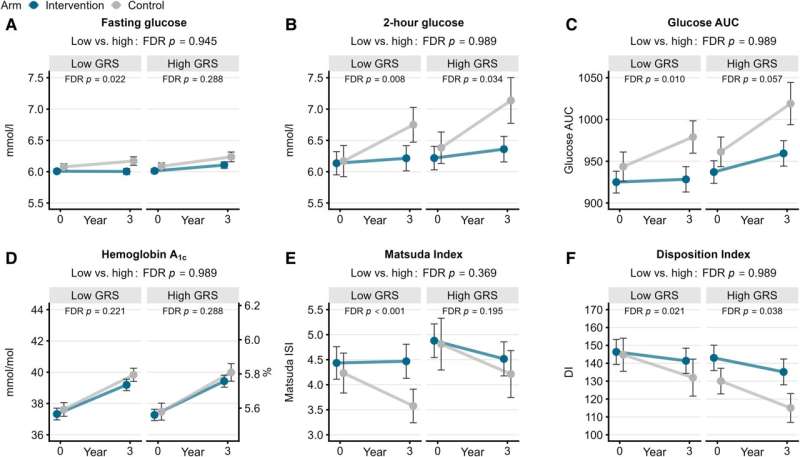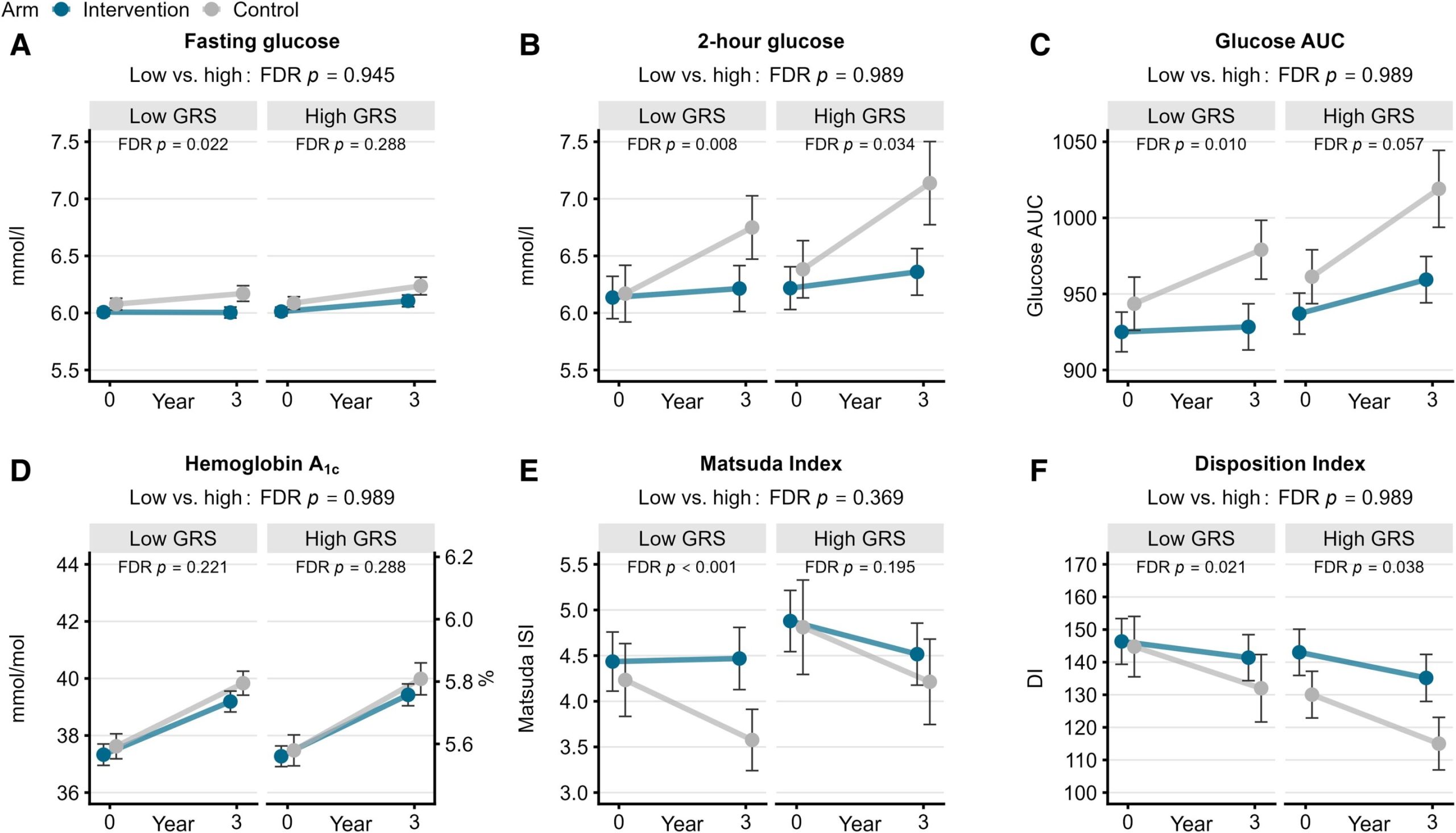
A new study from the University of Eastern Finland is the first in the world to show that a healthy diet and regular exercise reduce the risk of type 2 diabetes even in individuals with a high genetic risk. In other words, everyone benefits from lifestyle changes, regardless of genetic risk.
Type 2 diabetes is a global problem. According to the International Diabetes Federation, IDF, 1 in 11 adults worldwide has diabetes, with type 2 diabetes accounting for 90% of the cases.
To date, researchers have identified more than 500 genetic variants that predispose individuals to type 2 diabetes, but lifestyle factors, too, affect the risk of developing the disease. Significant lifestyle-related risk factors include overweight, low intake of dietary fiber, high intake of saturated fats, and lack of exercise.
Previous studies have shown that type 2 diabetes can be effectively prevented by lifestyle changes, but it has not been explored whether the disease can be prevented even in individuals carrying numerous genetic variants that predispose them to type 2 diabetes.
The T2D-GENE Trial was a three-year lifestyle intervention that involved nearly 1,000 men aged 50 to 75 in eastern Finland. All those invited to the study had elevated fasting glucose at baseline. The lifestyle intervention group included more than 600 men, and the rest served as a control group. The findings are published in The Journal of Clinical Endocrinology & Metabolism.
Men in the intervention group received guidance on health-promoting lifestyles in group meetings, and they were supported by a web portal designed for the study. Those invited to the study belonged either to the lowest or the highest tertile in terms of genetic risk, i.e., they had either a high or a low risk of developing type 2 diabetes.
Genetic risk was determined based on 76 gene variants known to predispose to type 2 diabetes. During the intervention, neither the study participants nor the researchers knew to which genetic risk group the participants belonged. All those who participated in the intervention received the same lifestyle guidance.
Men participating in the lifestyle intervention were able to significantly improve the quality of their diet. They increased their intake of dietary fiber, improved the quality of fats in their diet and increased their consumption of vegetables, fruits and berries. Weight loss was also observed, although this was not an actual weight loss study.
The participants were physically very active already at baseline, and they managed to maintain their good exercise habits throughout the study. With these changes, it was possible to reduce the deterioration of glucose metabolism.
The prevalence of type 2 diabetes was significantly lower in the lifestyle intervention group than in the control group. The effects of lifestyle changes were equally significant for individuals, regardless of whether they had a low or a high genetic risk.
“These findings encourage everyone to make lifestyle changes that promote health. Furthermore, they demonstrate the effectiveness of group- and internet-based lifestyle guidance, which saves health care resources,” says University Lecturer, Docent Maria Lankinen of the University of Eastern Finland, the first author of the study.
More information:
Maria Anneli Lankinen et al, Effects of Genetic Risk on Incident Type 2 Diabetes and Glycemia: The T2D-GENE Lifestyle Intervention Trial, The Journal of Clinical Endocrinology & Metabolism (2024). DOI: 10.1210/clinem/dgae422
Citation:
Study shows type 2 diabetes can be prevented by diet and exercise even in individuals with high genetic risk (2024, August 7)
retrieved 28 September 2024
from https://medicalxpress.com/news/2024-08-diabetes-diet-individuals-high-genetic.html
This document is subject to copyright. Apart from any fair dealing for the purpose of private study or research, no
part may be reproduced without the written permission. The content is provided for information purposes only.

